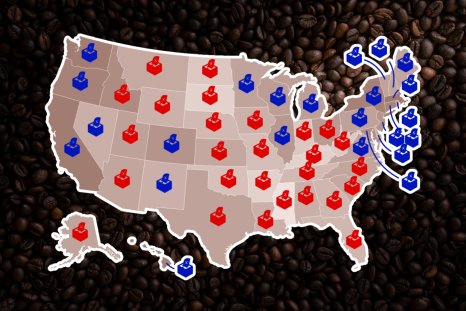Fleets of hundreds of driverless cars could help stranded, vulnerable people escape from devastating hurricanes to the safety of shelters out of harm's way.
This is the idea presented by researchers from the University of Texas at Austin, who used a supercomputer to explore how, should a hurricane hit the Houston coast, so-called "robotaxis" could possibly rescue people who don't have access to a car of their own.
While Hurricane Francine missed Houston, it brought with it 100 mph winds and cut the power to hundreds of thousands of people while making landfall in Louisiana on Wednesday.
In the Houston area, the researchers explained, there are thousands of people—listed, for example, in Medicare databases—who don't have access to a car in such emergencies.
The autonomous vehicles would pick people up and drop them off at bus stations, from where they could be transported to hurricane shelters further inland.
"That can be difficult to do in these low density, more rural environments to do in less than a couple of hours," said transportation engineer professor Kara Kockelman of UT Austin in a statement.
Kockelman and her colleagues ran simulations of mid-evacuation traffic flows and jams on the "Frontera" supercomputer at the Texas Advanced Computing Center in Austin, the fastest such machine on any U.S. university campus.
The software they used—dubbed "Simulation of Urban Mobility" or "SUMO," for short—had quite the task on its hands.
The team considered the kind of evacuation that would be necessary were Houston to be struck by a Category 5 hurricane, with wind speeds exceeding 155 mph and a storm surge of more than 18 feet above normal tide levels.
(To date, no Category 5 has ever made landfall in Texas. The most recent major storm to hit, 2017's Harvey, peaked at Category 4 and killed more than 100 people and inflicted some $125 billion in damage.)
In this scenario, an estimated 900,000 people would be given orders to evacuate in the days before the storm hit—nearly an eighth of the total population of the Houston area—with those in Brazoria, Chambers, Galveston, Harris and Liberty counties at particularly high risk.
The simulation had to work out how best to pick up and transport those needling a lift to safety in the run up to hurricane landfall, factoring in traffic congestion around Houston's complex road network, which is made up of 36,124 links across 5,217 "traffic analysis zones", of which nearly one-in-five are in high-risk areas.
The team assumed that the traffic load on Houston's roads was about half that of normal—with the rest of the driving population sheltering in place.
"SUMO models the daily activities of everyone living in the region," said UT Austin Ph.D. student Kentaro Mori in a statement. "There's a lot of complexity that adds to the computational cost."
"A key finding of our study is that if you need to size this system for a certain evacuation period, then you're going to want one shared vehicle for every 14 evacuees along the very long coastline between Galveston and Houston," said Kockelman.
The researchers had started out running their simulations with 200 robotaxis, before ultimately expanding out to an automated rescue fleet of 1,200 vehicles.
However, the team found that as the fleet grew, the supercomputer model predicted diminishing returns on the extra vehicles.
They also explored the impact of using different-sized cars. Kockelman explained: "At the end of the day, the five-seater cars were the nimblest.
"These vehicles accelerate more quickly into traffic compared to the larger vehicles."
While the results of the simulations are not presently being put into practical use for hurricane planning, the researchers did work with Texan evacuation leaders as they developed their study.
And the team says that they expect driverless cars to play a bigger role in evacuations in the future, particularly as autonomous vehicle firms expand their ridership and improve the underlying software that guides their taxis.
In the future, the researchers explained, the supercomputer models could be applied to plan similar hurricane evacuations in other at-risk cities.
They could even be adapted to suit evacuations required by other kinds of disasters—such as, for example, wildfires like those currently blazing across California.
Before, it had not been feasible to simulate traffic amid an evacuation order in enough detail, Kockelman said, adding: "this work is impossible without supercomputers."
Key is the ability to factor in how different people make decisions and how the flow of traffic can change on a second-by-second basis.
In the new simulations, Kockelman said, "that richness comes alive."
Do you have a tip on a science story that Newsweek should be covering? Do you have a question about hurricanes? Let us know via science@newsweek.com.
REFERENCE
Lee, J., & Kockelman, K. M. (2024). Leveraging shared autonomous vehicles for vulnerable populations during pre-disaster evacuation. Transportation Planning and Technology. https://www.tandfonline.com/doi/abs/10.1080/03081060.2024.2360678
Disclaimer: The copyright of this article belongs to the original author. Reposting this article is solely for the purpose of information dissemination and does not constitute any investment advice. If there is any infringement, please contact us immediately. We will make corrections or deletions as necessary. Thank you.



